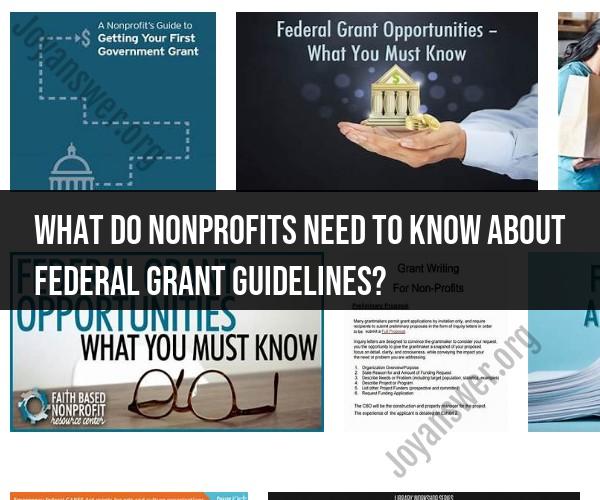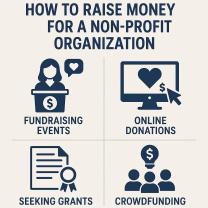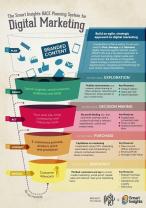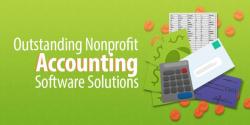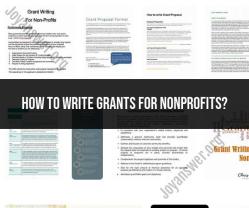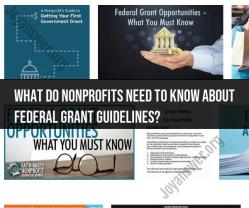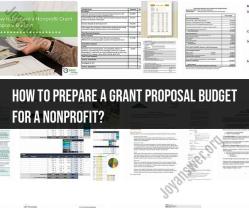What do nonprofits need to know about federal grant guidelines?
Nonprofits seeking federal grants should be aware of several key aspects and guidelines to ensure they are eligible and prepared to navigate the grant application process. Here's what nonprofits need to know about federal grant guidelines:
Eligibility Requirements: Different federal grant programs have specific eligibility criteria. Nonprofits must carefully review the eligibility requirements outlined in the grant's official documentation. Eligibility criteria may include the type of organization, location, focus area, and more.
Federal Grant Agencies: Federal grants are administered by various agencies, each with its own grant programs and guidelines. Nonprofits should identify the relevant federal agency that aligns with their mission and the specific grant they are interested in.
Types of Federal Grants: Federal grants come in various forms, including competitive grants, formula grants, block grants, and discretionary grants. Each type has its own application process and guidelines. Nonprofits should understand the type of grant they are pursuing.
Application Process: Federal grant applications typically involve a competitive process. Nonprofits must follow the instructions provided in the grant announcement carefully. This may include submitting a detailed proposal, budget, work plan, and other required documentation.
Grant Writing: Effective grant writing is crucial. Nonprofits should craft a compelling and well-structured proposal that addresses the grant's objectives, aligns with the organization's mission, and demonstrates the capacity to carry out the proposed project.
Budgeting: Accurate and detailed budgeting is essential. Nonprofits must develop a budget that clearly outlines how grant funds will be used for project-related expenses. Budgets should align with the grant's guidelines and objectives.
Reporting and Accountability: Federal grants often require nonprofits to provide regular progress reports and financial documentation to demonstrate accountability and ensure compliance with grant terms. Nonprofits should be prepared to meet reporting deadlines and requirements.
Match Funding: Some federal grants may require nonprofit organizations to provide a matching contribution or cost-sharing. Nonprofits should understand the match requirements and their ability to meet them.
Compliance and Audits: Nonprofits that receive federal grants may be subject to audits and compliance checks. It is essential to maintain accurate financial records and comply with federal regulations to avoid potential issues.
Grant Management: Successfully managing a federal grant involves effective project management, tracking expenditures, achieving project objectives, and meeting reporting deadlines. Nonprofits should establish strong grant management processes.
Federal Regulations: Federal grant programs are subject to various federal laws and regulations, including the Uniform Administrative Requirements, Cost Principles, and Audit Requirements for Federal Awards (Uniform Guidance). Nonprofits must comply with these regulations.
Review and Feedback: Nonprofits should consider seeking feedback from grant program officers or consultants experienced in federal grants. Reviewing and revising grant applications can improve the chances of success.
Timeliness: Federal grant opportunities have specific deadlines for application submission. Nonprofits should plan ahead to ensure they have sufficient time to prepare and submit their applications.
Local Resources: Nonprofits can often access assistance and guidance from regional or local grant resource centers, nonprofit support organizations, and government agencies that offer workshops and technical assistance for grant applicants.
Persistence: Federal grant applications are highly competitive, and rejection is common. Nonprofits should be persistent and continue seeking grant opportunities that align with their mission and objectives.
Navigating federal grant guidelines can be complex, but with careful preparation, compliance, and persistence, nonprofits can increase their chances of securing funding to support their programs and initiatives. It's also important to stay updated on changes in federal grant regulations and guidelines that may impact the application process.
